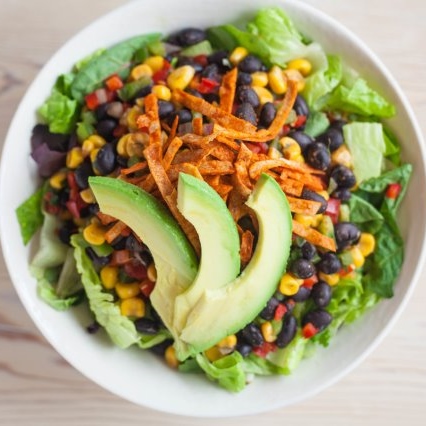
SA

Is veganism the new Kashrut?
TALI FEINBERG
The declaration urges Jews to switch to a vegan diet. As Rosen boldly states: “Any other form of Kashrut is highly problematic, so if you really want to be true to both the letter of the law and the spirit of law of what Kashrut is all about, you should eat a plant-based diet.”
The declaration, published just before the High Holy Days in September 2017, also stated: “This approach to sustenance is an expression of our shared Jewish values of compassion for animals, protection of the environment and concern for our physical and spiritual wellbeing.”
However, for many Jewish people, eating meat, dairy and eggs is a major part of Jewish culture, from Shabbos roast chicken to cheesecake on Shavuot. But if you are looking for a lifestyle change that is in line with global trends and Jewish thought leaders, making plant products the basis of your diet could be worth the sacrifice and full of rewards.
Recently, hospitality consulting firm Baum + Whiteman published its 2018 Food & Beverage Forecast, which states that vegan food will be a mega trend this year.
The fact that it’s an animal-free diet which can also benefit the environment may also be key attractions.
As published in the Guardian, the Institute of Mechanical Engineers estimates that it takes between 5 000 and 20 000 litres of water to produce 1kg of meat, whereas to produce 1kg of wheat requires between 500 and 4 000 litres of water. To put things in perspective: You’d save more water by not eating half a kilogram of meat than you would by not showering for six months.
Finally, adopting veganism as your new year’s resolution may benefit your waistline and overall wellbeing, with vegetables, fruits and legumes being the most filling and nutritious foods with the least calories.
Jessica Kotlowitz, a registered dietician in Cape Town, specialises in vegan eating. She explains: “Not only are plant-based diets effective for managing weight, they also prevent and treat some of the world’s biggest killers, namely heart disease, hypertension, diabetes and cancer. Plant-based diets, which are focused on whole foods, provide all the essential nutrients needed for optimal health.
If you’re looking for further inspiration, simply hit the streets of Tel Aviv, which has been named “the vegan capital of the world” by the UK Independent newspaper. Over the past six years, the explosion of plant-based restaurants has transformed Israel’s population into the largest vegan nation, per capita, on the planet.
“With 400 vegan and vegan-friendly kitchens catering to most of Israel’s 200 000 vegans, going meat-free isn’t just easy here; it’s a chance to sample the best food in town.” says the Independent.
A resolution that benefits our Judaism, our environment, our taste buds and our health – it’s a lot to think about, but taking steps towards a diet free from animal products doesn’t have to be overwhelming, and can be an exciting culinary and lifestyle challenge.
Kotlowitz advises you start by eating vegetarian or vegan once a week, in line with the Green Monday movement. You could take this further by having one meatless meal a day, learning to re-orientate your plate around vegetables.
Eating plant-based food doesn’t mean restricting yourself to vegan restaurants or never leaving home again. Trendsetter and businesswoman Talya Goldberg recently created the online directory Vegan Foodie Cape Town. A vegan herself since 2015, she’s found that one of the biggest misconceptions is that it’s impossible to eat out, and even if you can, there aren’t any good options.
“I decided to contribute a directory of all the best places in Cape Town where you can go and eat a vegan meal.” These include restaurants like Tasha’s, Willoughby & Co. and the award-winning Pot Luck Club. “Veganism is definitely becoming more acceptable and mainstream,” says Goldberg.
Goldberg hasn’t eaten out at a lot at vegan spots in Johannesburg, “but my favourite is FreeFoods, for theirdelicious pesto pasta and iced chai latte”.
Goldberg points out that “in theory, all vegan food is kosher. There is no mixing of meat and milk, no shellfish, no pork. Also, a lot of parev products, such as Orley Whip, are ‘accidentally’ vegan and can be used to make dairy-free desserts.
Whether you reduce your meat consumption, go vegetarian or commit to vegan eating, you’ll be making a positive difference to your wellbeing and to the world around you. In the words of Rabbi Rosen: “In our world today, it is precisely a plant-based diet that is truly consonant with the most sublime teachings of Judaism and of the highest aspirations of our heritage.”





David B
January 25, 2018 at 10:11 am
‘We are obviously living in a new world of ‘perceived sustainability is king ‘ . the new war-cry is —
‘“Veganism is definitely becoming more acceptable and mainstream,”
. In the words of Rabbi Rosen: “In our world today, it is precisely a plant-based diet that is truly consonant with the most sublime teachings of Judaism and of the highest aspirations of our heritage.” becoming more acceptable and mainstream,” per TalyaGoldberg.who sprouts new ways to market her ‘Vegan Foodie Cape Town
Has the Rabbi forgotten that the mainstream of Jewish people of today and yester-year have applied so many of the official rules of kashrut to a major diet of red meat , chicken and eggs and milk products?
What would the Rabbis do without their regular Kashrut discussions ?
‘
Ploni Cohen
January 25, 2018 at 2:59 pm
‘Are there any recognised Halkachic authorities among the signatories?’